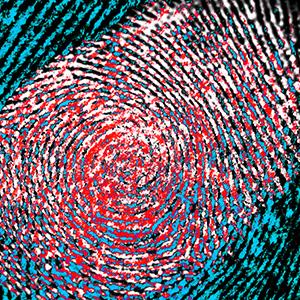Lawrence Johnson had no idea that earning a living working at his father’s painting business could one day lead to prison. Johnson has been in jail since 2009, serving a life sentence for a murder that occurred in 1996. Johnson has consistently claimed that he was innocent—through two trials and over twenty years.

On August 2, 1996, a woman was found dead in her home in Palm Beach County. During the investigation, two well-known drug addicts who lived in the area implicated Johnson. After finding a single fingerprint of Johnson’s in the victim’s home—a home that Johnson had been hired to paint and visited multiple times in the past—the police arrested Johnson in November of 1996.
Before the first trial, the State entered a nolle prosequi because its key witness could not testify.
“A nolle prosequi, or a nolle pros as it is often called, simply means the state elected not to prosecute Mr. Johnson further,” explained Craig Trocino, the Clinic’s Director. “A nolle pros is different than a dismissal because in certain circumstances the case can be resumed." This is precisely what happened in 2009 after a cold case review. Johnson was tried and convicted of first-degree murder in 2010 and sentenced to life in prison.
From the beginning, Johnson always maintained his innocence and contacted the Miami Law's Innocence Clinic asking for assistance. A closer look by Innocence Clinic students has exposed a number of reasons why Johnson’s conviction should be investigated.
“A lot of what I have been working on is the investigation. Trying to find old police reports and contacting the witnesses in hopes that we will discover new evidence to bring to the court,” said Laura Conner, a 2L assigned to the case. “This case has two of the leading causes of wrongful convictions at work, erroneous eyewitness testimony and incentivized testimony,” said Trocino.
This year the clinic has also been working with a DNA expert to explore a more scientific pathway towards an overturned conviction. “We are hoping that retesting the DNA in Johnson’s case is a successful path," Connor said. "Because DNA testing can affirmatively prove that Johnson was not involved, it would be amazing to be able to exonerate a client through new and developing science."
Over the next few months, the Innocence Clinic will work in close collaboration with an expert and write motions to pursue exoneration through DNA. Hopefully, soon Lawrence Johnson will be able to return to not only his father's painting business—but also his life.

